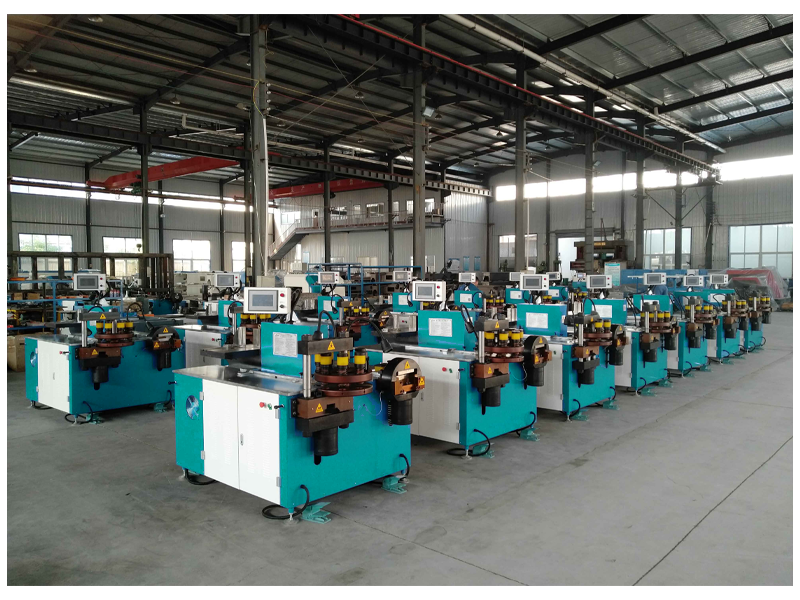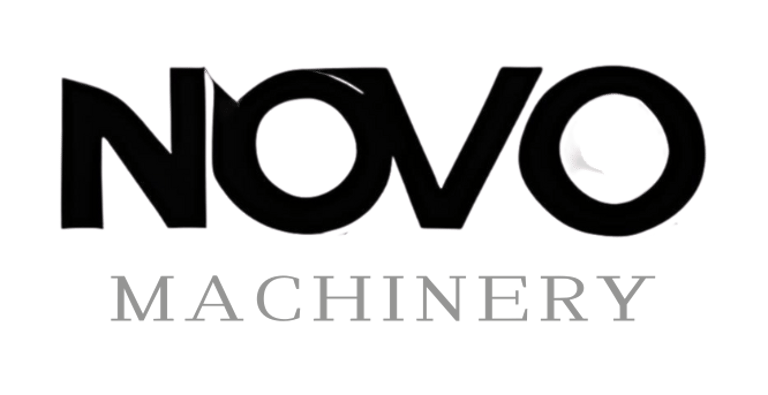Profitable CNC Busbar Machining Machines
Discover the best power equipment traders offering profitable CNC busbar machining machines. Enhance your production efficiency and profitability with top-quality equipment tailored for your machining needs.
7/16/20254 min read


Understanding CNC Busbar Machining Machines
CNC busbar machining machines are specialized tools designed to optimize the production of busbars, which are crucial components in electrical distribution systems. These machines employ computer numerical control (CNC) technology, allowing for enhanced precision in machining processes, which is essential in environments where accuracy is paramount. By utilizing automated controls, CNC busbar machining machines can achieve intricate designs and configurations with minimal manual intervention, streamlining the manufacturing process and reducing the potential for human error.
The specifications of CNC busbar machining machines can vary significantly, depending on their intended application and the materials they are designed to work with. Common specifications include the maximum cutting thickness, the range of cutting materials, and the types of machining operations they can perform, such as punching, bending, or cutting. These machines often feature advanced programming capabilities that allow operators to execute complex designs, further enhancing their versatility. Moreover, capabilities such as multi-axis machining and integration with software for design optimization are becoming increasingly standard.
There are several types of CNC busbar machining machines available in the market, each tailored for specific functions. For instance, some machines are designed primarily for cutting, while others excel in bending operations. Furthermore, there are hybrid models that combine multiple functionalities, providing users with the flexibility to adapt to various production needs. Understanding the different types of CNC busbar machining machines is crucial for entities in the power equipment trading sector, as selecting the right machine can significantly affect production efficiency and overall profitability.
Key Factors to Consider When Selecting CNC Machining Machines
When power equipment traders are tasked with selecting CNC busbar machining machines for their clients, several vital factors must be taken into account to ensure the chosen machines not only meet the specific operational needs but also enhance profitability. First and foremost, the machine's capacity plays a crucial role. It is imperative to evaluate the volume of production required and the machine's ability to handle that workload efficiently. A higher capacity can lead to increased productivity, ultimately translating to greater profit margins.
Speed is another significant factor that cannot be overlooked. The speed at which a CNC busbar machining machine operates directly impacts the output rate. A faster machine can fulfill orders more promptly, thus catering to client demands and reducing lead times. Nevertheless, it is essential to balance speed with precision, ensuring that high-speed operations do not compromise the quality of the finished product.
Versatility is essential for traders, as a machine that can perform multiple tasks may reduce the need for additional investments in other equipment. This flexibility allows clients to adapt swiftly to changing market demands and product variations without incurring substantial costs. Additionally, the durability of the machine must be evaluated; machines constructed from robust materials are more likely to withstand the rigors of daily operations and require less frequent replacements or repairs.
Technological advancements in CNC machinery can also enhance productivity and accuracy. Traders should consider the integration of state-of-the-art features such as advanced control systems and automation capabilities. These technologies often lead to reduced operational costs and improved performance. Finally, it is essential to assess the total cost of ownership, including maintenance costs, to give clients a comprehensive understanding of the financial commitment involved in acquiring CNC busbar machining machines. By carefully weighing these factors, power equipment traders can recommend solutions that maximize profitability for their clients.
Market Trends and Demand Analysis
The CNC busbar machining industry is witnessing significant shifts in market trends that are profoundly influencing the decision-making processes of power equipment traders. One of the most notable trends is the increasing demand for energy-efficient and eco-friendly manufacturing solutions. As industries worldwide become more environmentally conscious, the need for machines that can operate with lower energy consumption while maintaining high productivity levels has surged. This shift not only helps in reducing operational costs but also aligns with global sustainability goals, an essential aspect for modern manufacturers.
Another key factor driving the evolution of the CNC busbar machining market is the impact of automation. Enhancements in technology have led to sophisticated automated systems that improve precision and reduce human error. Traders are now prioritizing machines equipped with advanced automation features, as these capabilities allow for increased efficiency and lower labor costs. On top of that, automation facilitates a smoother production process, enabling traders to offer clients solutions that ensure consistent output quality. The integration of automation technology is seen as pivotal for businesses aiming to remain competitive in this fast-paced environment.
Regional market dynamics also play a crucial role in the selection of CNC busbar machining machines. Different regions exhibit distinct preferences based on local manufacturing practices and regulatory requirements. For instance, manufacturers in Europe may prioritize eco-friendly machines due to stringent regulations, while those in North America might focus more on throughput and scalability. By understanding these regional nuances, power equipment traders can better align their product offerings with client needs. Successful case studies, such as implementations of energy-efficient machines in manufacturing plants, exemplify how a keen awareness of market demand can lead to more informed equipment choices that ultimately benefit clients.
Building Long-Term Client Relationships Through Equipment Selection
In the realm of power equipment trading, fostering long-term relationships with clients is essential for sustained business success. One of the most effective strategies to achieve this is by providing personalized CNC busbar machining machine solutions tailored to the specific needs of each client. By closely examining their operational goals and challenges, traders can recommend equipment that not only meets immediate requirements but also aligns with clients’ long-term business objectives.
Understanding the unique demands of each customer is crucial. Conducting thorough assessments of their production processes and future aspirations enables traders to make informed recommendations. This alignment of equipment selection with client needs not only enhances customer satisfaction but also builds trust and loyalty. Clients are more likely to return to traders who demonstrate a clear understanding of their business and provide relevant solutions instead of generic recommendations.
Furthermore, effective communication plays a vital role in nurturing these relationships. Regular check-ins and discussions about operational effectiveness, challenges, and potential equipment upgrades can help traders stay connected with their clients. By being proactive in anticipating future equipment needs, traders can position themselves as invaluable partners in their clients' success, rather than merely vendors.
After-sales support is another cornerstone of relationship-building. Providing training on the CNC busbar machining machines ensures that clients can operate their equipment efficiently and safely. This not only improves their productivity but also shows a commitment to their success. Ongoing support, including maintenance services and quick responses to inquiries, further solidifies the trader-client relationship.
Ultimately, the foundation of sustained client relationships lies in a commitment to quality, personalized service, and consistent communication. By focusing on client needs and prioritizing their satisfaction through tailored equipment solutions, traders can foster lasting partnerships that benefit both parties.
Innovate
Leading manufacturer of busbar processing equipment solutions.
Contact
Support
+131 2713 4627
© 2025. All rights reserved.
